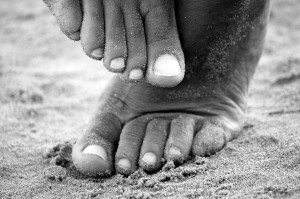Article Contributed by Crystal Karges, MS, RDN, IBCLC for Addiction Hope
 Sexual addiction or compulsive sexual behavior is unique in that it is a widely recognized disorder yet an official diagnostic criterion is not yet available or established in the Diagnostic and Statistical Manual of Mental Disorders (DSM).
Sexual addiction or compulsive sexual behavior is unique in that it is a widely recognized disorder yet an official diagnostic criterion is not yet available or established in the Diagnostic and Statistical Manual of Mental Disorders (DSM).
The DSM, which is published by the American Psychiatric Association, is an important resource for recognition and treatment of various mental health issues. The exclusion of sexual addiction from the DSM complicates the advancement of treatment for this disorder, as many insurance companies are reluctant to cover the cost of a mental health issue that does not have established diagnostic criterion.
Expanding Research on Sexual Addiction to Help Treatment Options
For these reasons, the expansion of research in the field of sexual addiction is important to advance the cause of the countless number of individuals who suffer from this disorder. Through research efforts, the various components of sexual addiction are better understood, such as biological, psychological, and emotional factors that may be attributed to this disorder.
What research has been done in the area of sexual addiction and how do research findings contribute to the current knowledge and treatment of sex addicts?
Major Studies on Sexual Addiction
One of the first major studies of sexual addiction was published by researcher Patrick Carnes in the early 90’s and involved almost 1,000 participants with sexually addictive behaviors. In this study, Carnes had the participants respond to a questionnaire to gather data about the feelings sexual addicts experience as a result of their behaviors.
Results demonstrated that 97% of respondents felt that their sexual activity led to a loss of self-esteem [1].
Other emotions reported included:
- Intense feelings of guilt and shame (96%)
- Loneliness and isolation (94%)
- Hopelessness and despair (91%)
- Acting against personal values and beliefs (90%)
- Emotional instability (78%) [1]
From questionnaire results, Carnes also found that 42% of sex addicts surveyed in his sample had reported a co-occurring problem with drug dependence or alcohol and 38% struggling with eating disorders [1]. These findings give insight into the emotional concerns of a sex addict and the reality of the struggles that they are facing.
The Addictive Component of Sexual Disorders
Carnes research study also revealed the addictive component of sexual disorders. 64% of participants reported continuing their sexual behaviors despite the risk of disease or infection [1]. These findings confirm one of the understood characteristics of sex addicts.
Individuals with a sexual addiction will compulsively act out in destructive behaviors despite the negative consequences that may result, such as disease, illness, financial difficulty, strained relationships, and more.
Classifying Sexual Addiction as a Mental Health Disorder
Current research has delved into the biological and genetic components of sexual addiction, searching for greater scientific proof to help classify this disorder as a mental health issue. Several studies have investigated the genetic predisposition of addictive behavior, including eating disorders, substance abuse, and sexual addiction.
A recent research study discovered that individuals with sexual addiction had brain activity similar to those of people with drug addictions, which highlights the biological component of hypersexuality [2].
Still Gaps in Research for Sexual Addiction
While research about sexual addiction is expanding and bringing a greater understanding of this disorder, there are still areas of research that are yet to be explored. Further research would ideally expand on the role of genetics in compulsive sexual behavior as well as study ways in which culture impacts a person’s susceptible to hypersexuality.
By having a more complete picture of sexual addiction through these multiple research lenses, this disorder is more likely to be included in upcoming versions of the DSM.
Help Is Available
 While research continues to provide a more complete picture of sexual addiction and the factors that influence these types of behaviors, it is important for sex addicts to know that help is available now.
While research continues to provide a more complete picture of sexual addiction and the factors that influence these types of behaviors, it is important for sex addicts to know that help is available now.
Clinical treatments allow for recovery and healing, and many mental health practitioners have a specialized focus on how to help individuals struggling with sex addiction. Research findings will only continue to refine treatment protocols and improve the lives of men and women who may feel burdened with these behaviors.
Some factors may yet be unknown, but receiving professional help and treatment for a sexual disorder is necessary and something all experts can agree with.
References:
- Patrick Carnes (1991). Don't call it love: Recovery from sexual addiction. New York: Bantam
- Livescience. “Sex Addiction and Drug Addiction Linked in the Brain”
The opinions and views of our guest contributors are shared to provide a broad perspective of addictions. These are not necessarily the views of Addiction Hope, but an effort to offer a discussion of various issues by different concerned individuals.
We at Addiction Hope understand that addictions result from a combination of environmental and genetic factors. If you or a loved one are suffering from an addiction, please know that there is hope for you, and seek immediate professional help.
Published on October 31, 2014
Last Updated & Reviewed By: Jacquelyn Ekern, MS, LPC on June 4, 2018
Published on AddictionHope.comm
